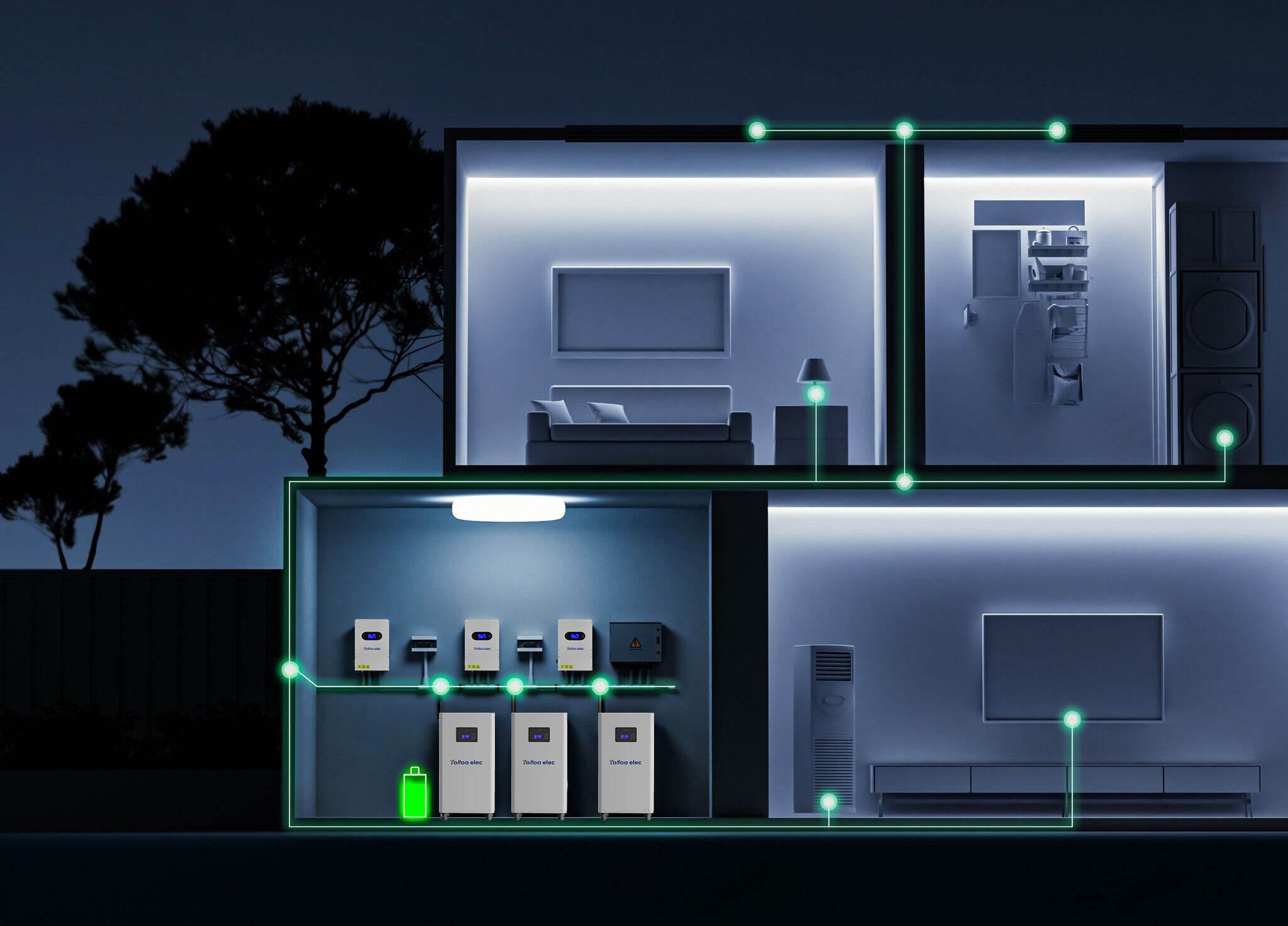Language
Currency


In both residential and commercial energy storage, growing electricity demand and changing load profiles often challenge system design. Scalability has therefore become a key factor in selecting the right storage solution. With modular parallel expansion, Yohoo Elec energy storage systems allow flexible capacity upgrades while maintaining system stability. This approach supports phased deployment, maximizes investment efficiency, and ensures adaptability to diverse application scenarios.
Parallel expansion refers to connecting multiple battery systems through both electrical and communication links to achieve coordinated increases in capacity and power output. This method enables users to scale their storage system according to actual demand, rather than committing to a full-capacity investment from the start.
Typical applications include:
Residential homes and rural microgrids
Small to medium-sized commercial buildings, warehouses, and factories
Telecom base stations and off-grid power projects in remote areas
Parallel expansion in energy storage involves three main aspects:
Battery modules must remain consistent in key parameters such as voltage, current, and State of Charge (SOC). This requires cell-level quality control, factory-level testing and sorting, and ongoing balancing through the Battery Management System (BMS).
Systems typically use CAN or RS485 communication protocols for synchronization and coordination. A master control unit collects battery status data, issues charge/discharge commands, and ensures orderly system operation, while slave modules execute instructions.
Modern BMS technology extends beyond protection functions like over-voltage, over-current, and thermal safety. Yohoo Elec BMS also supports module-level communication, adaptive scheduling, and automatic detection of new modules—simplifying expansion and improving efficiency.
Compared with fixed-capacity systems, parallel expansion offers multiple engineering and operational benefits:
Phased Investment – Users can add modules step by step as demand grows, improving capital efficiency.
Higher Reliability & Redundancy – In case of a module failure, other units continue operating, reducing system downtime risk.
Flexible Adaptation – Systems can be tailored to available space, installation conditions, and power demand across different use cases.
Ease of Transport & Maintenance – Modular units are compact and lightweight, making installation simpler even in high-rise or remote areas. Maintenance is also easier, as individual modules can be replaced without disrupting the whole system.
To ensure safe and efficient operation, the following points should be observed:
Select modules with consistent electrical parameters.
Perform pre-balancing of capacity and SOC when adding new modules.
Ensure communication protocols support module recognition and scheduling.
Use a proven BMS system that supports parallel operation and has been thoroughly tested.
For large-scale projects with many parallel modules, Yohoo Elec recommends working with experienced engineering teams to ensure long-term stability.
Parallel expansion has become a practical and future-ready design strategy for both residential and commercial energy storage. With modular deployment, distributed control, and scalable capacity, Yohoo Elec systems help users meet dynamic energy demands while maintaining safety and reliability.
Yohoo Elec modular battery systems support 1–16 units of parallel operation, enabling capacity growth from small home systems to large-scale commercial storage. This flexibility ensures long-term adaptability and a sustainable energy solution for diverse applications.
Error de formato de correo electrónico
emailCannotEmpty
emailDoesExist
pwdLetterLimtTip
inconsistentPwd
pwdLetterLimtTip
inconsistentPwd